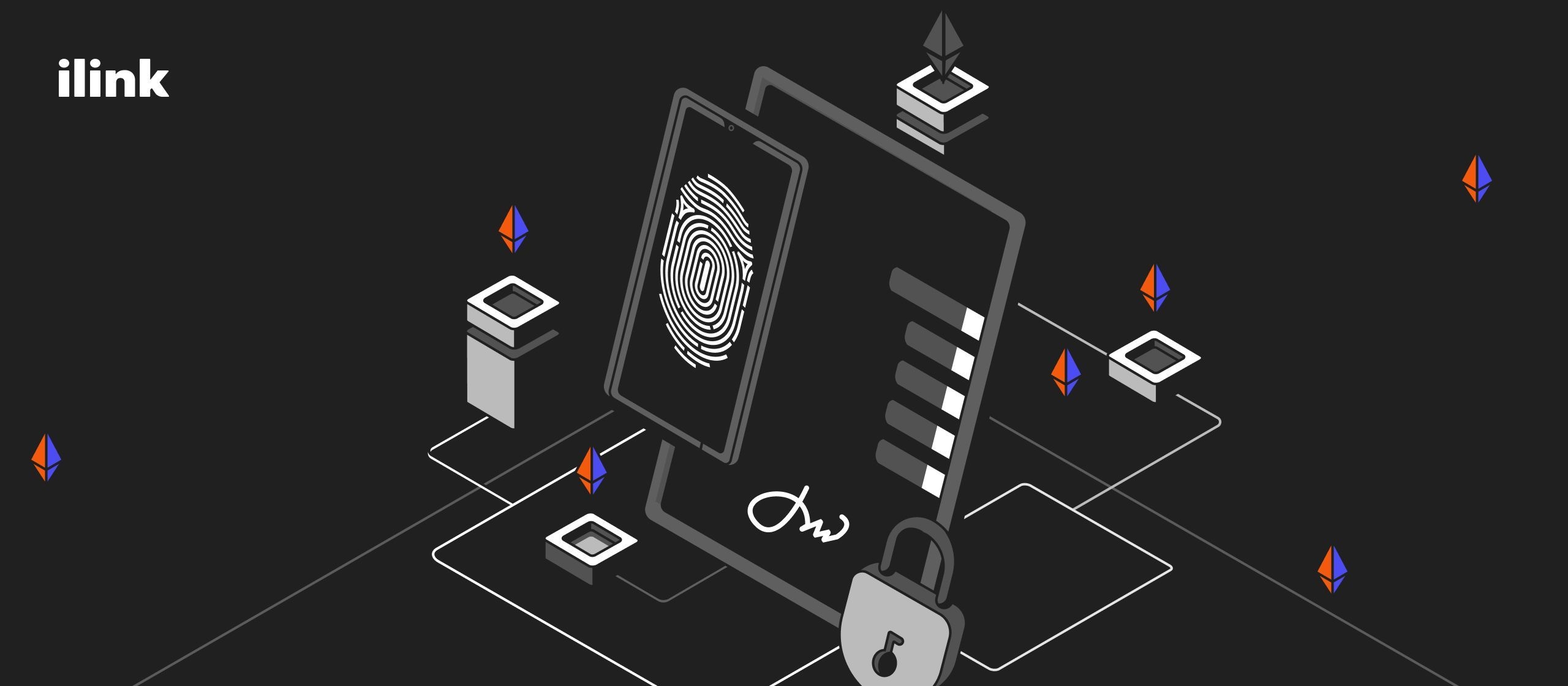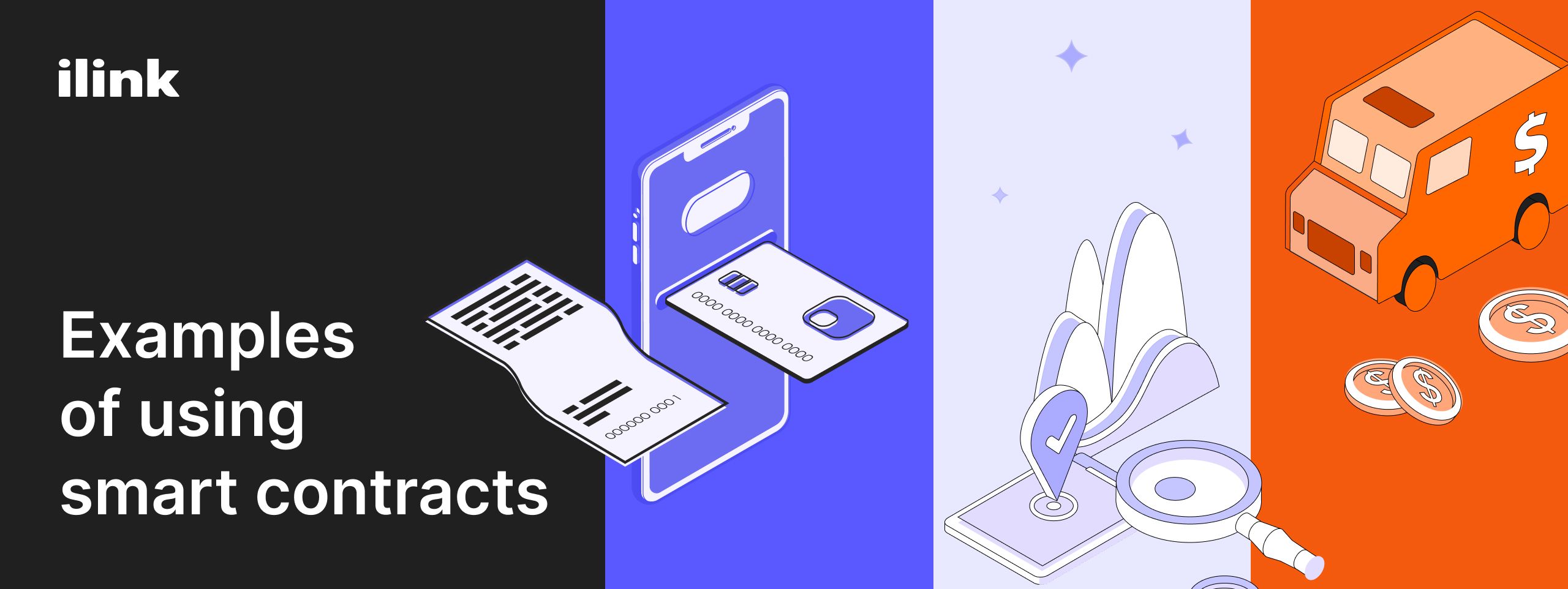How Smart Contracts Work

The Conditions of Smart Contracts Are Predetermined
Modern, fast, and efficient solutions are needed in all areas of society due to the rapid development of technology. A smart contract is an example of such a solution. In other words, it is the software code that runs on the blockchain. Using mathematical algorithms and programming languages, it describes certain conditions. It is very important to write the correct terms of the agreement when creating a smart contract, because they become part of the distributed ledger when they enter the blockchain. As a result, they cannot be changed, rewritten, or corrected.
The conditions of smart contracts are predetermined from the beginning. It automatically performs the actions defined in it once the conditions are met. There must be a mathematical description of all terms and a clear logic for their execution in the contract.
So, what is the problem solved by smart contracts? A contract of this type may include a variety of functions, such as authentication, information storage, and payment processing. In spite of the fact that smart contracts are generally associated with financial transactions, they have a wide range of applications, including asset management and supply chain management.
How Are Smart Contracts Executed
Smart contract execution primarily occurs on blockchain platforms, where the technology's decentralized nature ensures transparency, immutability, and security of the blockchain. Below is an overview of how smart contracts are executed:
Deployment. The developer writes the smart contract using a programming language suitable for the chosen blockchain platform. For instance, Ethereum uses a language called Solidity. The code is compiled into bytecode and then deployed to the blockchain. Once deployed, the smart contract is given a unique address, similar to a typical blockchain account.
Activation/interaction. Users or other smart contracts can interact with a deployed smart contract by sending transactions to its address. These transactions may involve function calls to perform specific tasks, such as transferring funds, voting, or any other logic encoded within the contract.
Execution. When a transaction targets a smart contract, the blockchain's nodes (often called "miners" or "validators" depending on the consensus mechanism) execute the contract's code in response to the received transaction. Every node on the network runs the smart contract code independently and comes to the same conclusion, ensuring decentralized consensus.
Deterministic nature. Smart contracts must be deterministic. This means that the output will always be the same for the same input. Since all nodes execute the contract and must reach a consensus, non-deterministic outcomes (like random number generation without a deterministic approach) can be problematic.
State changes. If a smart contract's execution results in changes to data values (like updating the balance of an account), those changes are recorded in the blockchain's state. After execution, any state changes are packaged into a new block and added to the blockchain, ensuring the contract's effects are permanent and immutable.
Gas and fees. Executing a smart contract usually requires computational resources. On platforms like Ethereum, users pay "gas" to compensate for this computational work. The amount of gas needed depends on the complexity of the smart contract's operations. If a transaction doesn't provide enough gas, the execution reverts, but the used gas isn't refunded. This mechanism prevents spamming and abuse of the network.
External data. Since blockchains are deterministic systems, smart contracts can't directly access external data (like current weather or stock prices). Services called "oracles" can provide this data to smart contracts. Oracles are trusted data providers that push external data onto the blockchain so that smart contracts can utilize it.
Termination. Some smart contracts are designed to be immutable and run indefinitely, while others might have functions that allow for self-destruction, removing the contract from the blockchain and sending any remaining funds to a specified address.
It's worth noting that while the concept of a smart contract is relatively simple, the implications and uses of this technology are vast, ranging from simple token transfers to complex decentralized applications (DApps).
Blockchain development company ilink ensures smart contract development, proper testing, auditing before deploying smart contracts.
What Is the Functionality?
This section does not describe the operation of a smart contract from a technical point of view, but aims to explain the execution of the contract through the examples provided.
Example 1:
Imagine that two parties decide to enter into such a contract. In a distributed ledger, they have written the terms of the contract as code. Smart contracts automate the execution of prescribed actions. It is the responsibility of both parties to fulfill their obligations. For example, you enter into an agreement with a company to make repairs to your house. Payments to the company are made automatically upon completion of the repair, according to all specified criteria.
For a more detailed example of how a smart contract works in the real world, let's look at another example.
Example 2:
Teresa and David decide to buy a house. Once a seller has been found, a contract is signed for the property's sale. They decide to create a smart contract rather than hire a real estate agent and a lawyer. It will contain information regarding the sale, including the price, terms, and conditions of the transaction. Teresa and David deposit money in cryptocurrencies on the blockchain ledger when the contract is created. The contract automatically verifies that the seller has transferred ownership to them, and the money is transferred to them.
Instances of Smart Contract Applications

The use of smart contracts is widespread in industries where it is necessary to reduce the number of intermediaries, eliminate the human factor, and accelerate routine transactions.
Crowdfunding. Any transfer of money, especially between strangers, is a process that requires trust and is subject to many risks. All crowdfunding is associated with investing in startup projects, but here I want to focus on the Initial Coin Offering. This is the initial release of a limited number of tokens by a project. Investors buy these tokens with the hope of making a profit by selling their coins at a higher price after the main supply begins. A startup receives initial investment for its project. Here, a smart contract allows you to eliminate the possibility of fraud on both sides and make transactions in a specific algorithm of sequential actions.
DeFi and DAO. A decentralized autonomous organization is a form of organization in which activities are coordinated without centralized control. Because DAOs operate offline, they use smart contracts. Unlike traditional companies, which suggest trusting people, DAOs suggest trusting code. Thus, smart contracts remove the human factor from the DAO product.
Decentralized finance is financial instruments in the form of blockchain-based services and applications. It is literally an alternative to the banking sector and the traditional technologies of the financial system. DeFi uses smart contracts to implement various services (loans, exchange services, insurance, etc.). Thanks to smart contracts, customers can use these services without intermediaries. The future of decentralized finance is being powered by smart contract platforms such as Ethereum and the Binance Smart Chain.
NFTs. In order to create an NFT, digital files need to be converted into crypto assets on the blockchain. A cryptocurrency asset is defined based on the characteristics of its underlying code when an NFT is created.
It is also possible to combat counterfeiting and plagiarism using the smart contracts that underpin NFTs. Blockchain-based contracts can determine when and where new tokens or NFTs are created automatically. Furthermore, smart contracts allow you to track copyrighted products and detect fake certificates. By the way, the use of NFT smart contracts is expanding beyond the art world to areas like gaming and sports memorabilia.
Metaverses. Virtual spaces are still under development, but they already exist at this time. Each metaverse is a separate digital world, and each metaverse has its own economy, currency, and forms of ownership. Smart contracts govern trade and exchange in the metaverse, just as they do in the real world. The purpose of these systems is to automate trades and transactions and to control the execution of these processes in accordance with predetermined rules.
Selecting a Company for the Development
It is a responsible decision to select a company to develop smart contracts. The importance of taking a careful approach cannot be overstated. When selecting the company, the following factors should be considered:
-
Experience and Qualifications. Probably the first thing that comes to mind when choosing a company is the cases they have implemented and the quality of those cases. Do not be lazy and look at the company's portfolio and read reviews about them. If you get a chance to meet the members of the team that will be working on your project, pay attention to their qualifications and skills.
-
Reputation and Reliability. Make sure that the company has sufficient resources to complete the tasks of your project. Do additional research on the company's reputation to ensure its reliability and financial stability.
-
Price and terms. Compare companies, their terms and project prices. Choose the one that offers the best value for your money.
These tips are not new, however it is important to consider not only your needs and requirements, but also the company's reputation, experience, and qualifications when choosing a company for the development or a smart contract developer. A smart contracts engineer is a skilled professional who specializes in developing and implementing smart contracts.
ilink offers high quality services for the development of smart contracts and smart contract audit. We respect your desire to have confidence in the team you hire for development, so we are ready to answer any of your questions.
We strive to provide our clients with the best quality services at affordable prices. The ilink team develops and optimizes smart contracts according to your requirements. We also provide auditing services for existing smart contracts. Our team uses modern development methodologies and proven quality control practices. This ensures the effectiveness of our solutions.
Benefits of Smart Contracts
Smart contracts offer a level of trust since data on the blockchain is immutable. Once a smart contract is deployed, parties can trust that its code won't change. This is complemented by transparency, as the contract terms are visible to all relevant parties, ensuring everyone understands the contract's functions.
One of the most highlighted benefits is automation. Smart contracts automatically execute when specific conditions are met, reducing the need for intermediaries, which can lead to significant time and cost savings. Moreover, this automation and lack of intermediaries can result in reduced costs, as there's no need for go-betweens or traditional contractual enforcement methods.
Additionally, security is heightened. Blockchains, where smart contracts run, are known for their strong cryptographic security, ensuring data integrity and reducing the risk of fraud. This is complemented by accuracy, as automated executions mean a lower risk of human errors.
Lastly, smart contracts can provide global and borderless operations. They operate on decentralized platforms accessible worldwide, enabling seamless interactions and transactions across different countries without the typical complications of international agreements.
In Which Programming Language Is Smart Contracts Written?
In the evolving smart contract landscape, newer standards like WebAssembly (Wasm) complement traditional languages like Solidity. This enables developers to use languages like JavaScript, TypeScript, and Python. Mrinal Manohar, CEO at Casper Labs, highlights this shift. Let's briefly look at nine significant smart contract languages:
- C++: An old, compiled language used by EOS, Stellar, and Ripple. It can be converted to Wasm but lacks memory safety.
- Clarity: Designed for the Stacks blockchain, it's non-Turing-complete, favoring security over flexibility.
- Java: Known for its "write once, run anywhere" principle, it's used by Corda, Ethereum, and others.
- JavaScript: A dominant web language, Ethereum, Neo, and Polkadot support. Libraries like web3.js facilitate dApp integration.
- Python: Simple and versatile, it's chosen by Ethereum and Neo, but being interpreted can affect performance.
- Rust: A solution to C and C++ memory issues, it's used by Polkadot and Solana, though it has a steeper learning curve.
- Solidity: The most popular smart contract language, it's used by Ethereum, Binance, and Tron but has faced historical vulnerabilities.
- Vyper: Resembling Python, it focuses on readability and is used on the Ethereum platform.
- Yul and Yul+: Alternatives to Solidity, they emphasize readability and control over costs.
In essence, the choice of smart contract language should align with a developer's goals, the platform's requirements, and the desired security features.
What Algorithm Is Used in Smart Contracts?
Smart contracts don't use just one "algorithm." Instead, they rely on a combination of algorithms, data structures, and protocols, depending on the context in which you're asking. However, when discussing smart contracts, a few key algorithms and protocols typically come into play:
- Consensus algorithms. These are foundational for blockchains, ensuring all nodes in a network agree on the validity of transactions. Some popular consensus algorithms include:
- Proof of Work (PoW).
- Proof of Stake (PoS).
- Delegated Proof of Stake (DPoS).
- Byzantine Fault Tolerance (BFT) variants like Practical Byzantine Fault Tolerance (PBFT).
- Cryptography algorithms. Smart contracts and blockchain transactions employ cryptographic algorithms to ensure security, identity, and authenticity. Key algorithms include:
- Elliptic Curve Digital Signature Algorithm (ECDSA) for transaction signatures.
- SHA-256 (used in Bitcoin) and Keccak (used in Ethereum) for hashing.
- Execution protocols. Smart contracts, when called or invoked, execute predefined code. For example, the Ethereum Virtual Machine (EVM) interprets bytecode instructions in Ethereum's smart contracts.
- Self-executing functions. At the heart of a smart contract is its self-executing nature when certain conditions are met. The logic or "algorithm" here is specific to each contract and is determined by the contract's creator.
- Token standards. It's not exactly an algorithm, but protocols like ERC-20 and ERC-721 in Ethereum define a set of rules and functions that tokens (like custom cryptocurrencies or non-fungible tokens) must adhere to. These are integral to many smart contract applications.
It's crucial to understand that while these algorithms and protocols are used in the context of blockchain and smart contracts, the specific "algorithm" a smart contract employs depends on its purpose and function. A smart contract for a decentralized exchange may use a different logic than one for managing identity or holding funds in escrow.
Who Actually Uses Smart Contracts?
Here are some entities and sectors that utilize smart contracts:
Financial Institutions and fintech. Banks use smart contracts to automate processes, such as loans or securities settlements. Decentralized finance (DeFi) platforms employ smart contracts to create loans, facilitate decentralized exchanges, and implement interest-bearing mechanisms.
Real estate. Automate and streamline property transactions, lease agreements, or escrow services.
Supply chain and logistics. Track goods and authenticate their origins. Automate payments upon meeting specific conditions (like delivering goods on time).
Governments. Digitize and automate certain administrative processes. Manage identity systems, especially in countries exploring digital IDs.
Entertainment industry. Artists and creators use smart contracts to ensure they receive royalties every time their work is bought or used. Tokenization of assets, such as collectibles, using non-fungible tokens (NFTs).
Insurance companies. Automate claims processing, especially for parametric insurance, where claims are settled once specific parameters are met.
Startups and ICOs. Use smart contracts for token sales, ensuring the distribution of tokens upon receiving payments.
Gaming. Integrate smart contracts for in-game asset ownership, trade, and other in-game operations.
Legal sector. Create self-executing wills or automate certain legal processes.
Voting systems. Experiment with secure and transparent voting mechanisms using blockchain and smart contracts.
Healthcare. Manage and authenticate health records, ensuring patient privacy and data integrity.
Utilities and energy. Decentralized energy grids where energy produced (e.g., via solar panels) can be sold back to the grid using smart contracts.
Retail. Loyalty programs and reward systems can be automated and tokenized using smart contracts.
These examples represent just the tip of the iceberg. As blockchain technology matures and gains more adoption, the application of smart contracts across sectors is bound to grow.
Is a Smart Contract an Executed Automatic Program?
Yes, a smart contract is a self-executing program. It operates based on predefined rules and triggers set in its code. When certain conditions encoded within the smart contract are met, the contract automatically executes actions without intermediaries or manual intervention. For example, suppose a smart contract is set up to release funds when a particular date is reached. In that case, it will do so automatically once that date arrives, provided all other conditions in the contract are satisfied.
Comments (1)
Latest Posts

Whether it's a consumer-facing mobile app or an internal business solution, mobile applications offer a range of benefits that can help businesses stay competitive in 2025.

Let’s explore the major software development categories and how they apply to various business needs.
Do You Have any Questions?
Leave your details - we will contact you to answer all your questions

